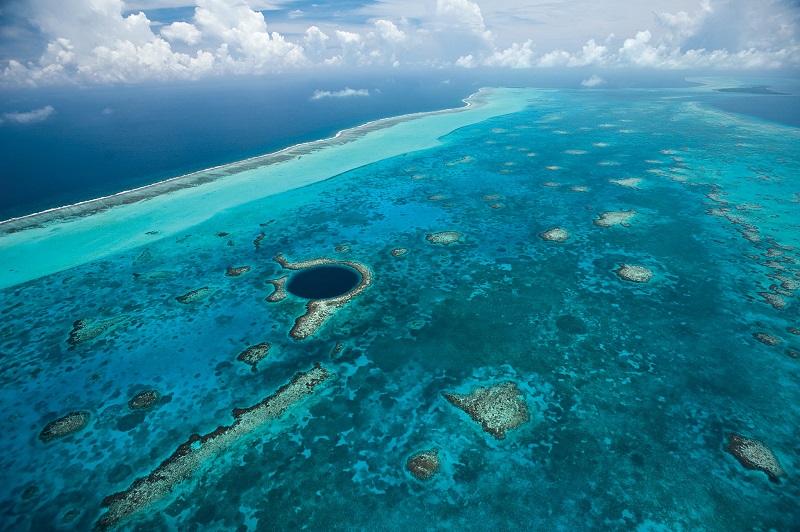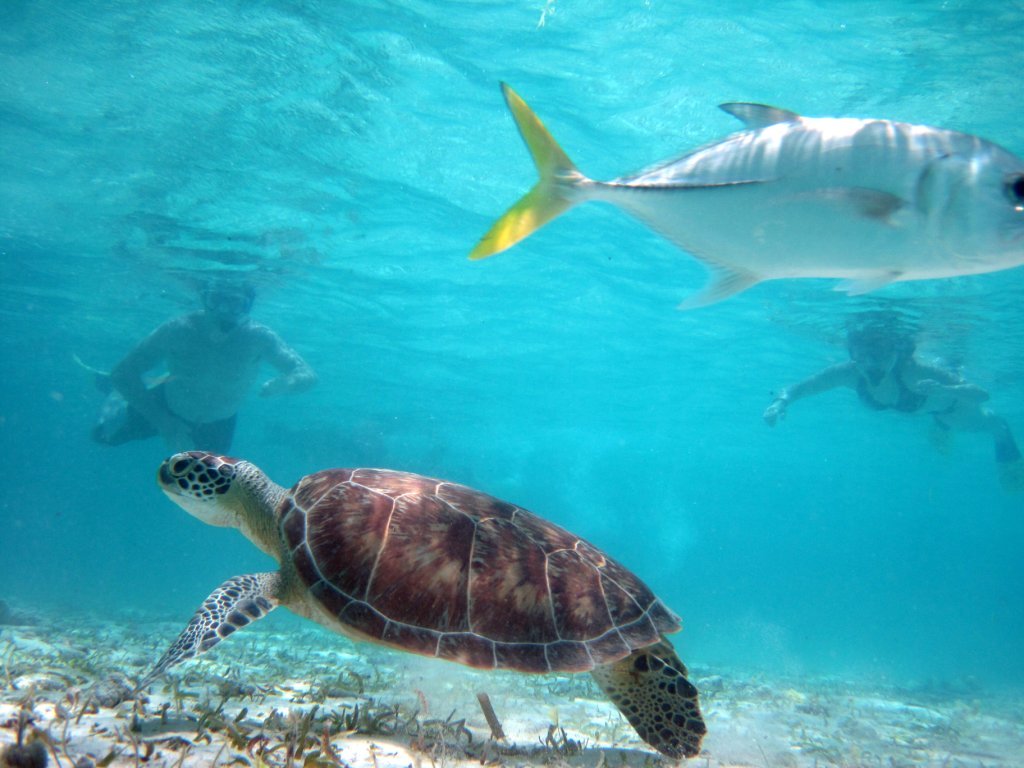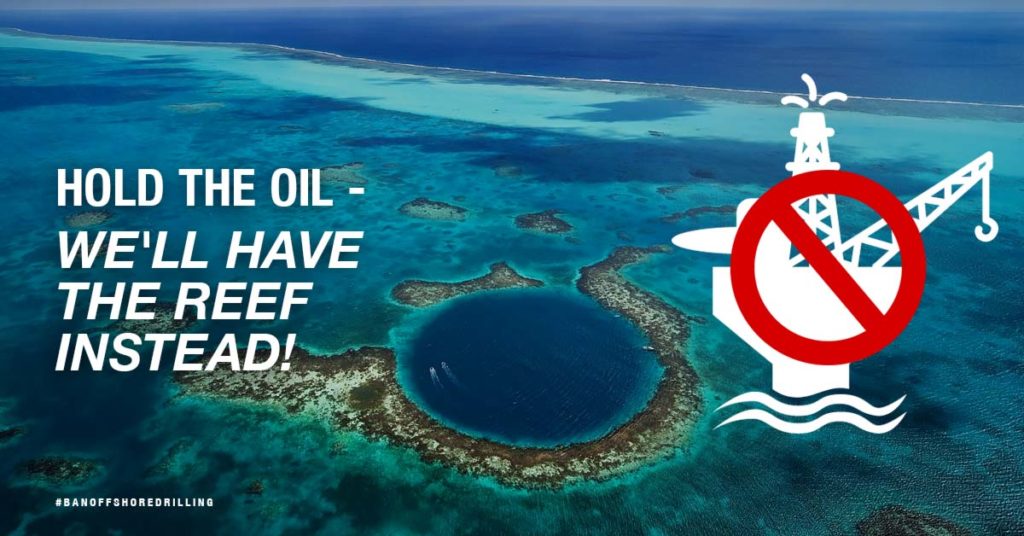If you were fortunate enough to be on Ambergris Caye on December 15, you couldn’t help but notice a large group of Belizeans gathered together and holding hands to form a human sign that read, “BZE SAID NO”
What did Belize say “no” to? And why do all these people look so happy?
Read on…
Almost one year ago, on December 29, 2017, the government of Belize enacted legislation that put an end to any drilling and all oil exploration activities on the Belize Great Barrier Reef. It was a shot in the arm for the environment that was heard round the world.

To refresh memories, Belize’s Barrier Reef – the second largest in the world and otherwise known as the Mesoamerican Barrier Reef, is a UNESCO World heritage site that had been put on the organisation’s “Danger List” due, in part, to the Government of Belize having negotiated contracts for oil exploration along the reef.
To that same government’s credit, and after intense lobbying by local and international conservationists and organisations such as Oceana, Belize formally halted all oil exploration in her territorial waters.
Wow.
As the World Wildlife Foundation’s Chris Gee put it,
“The decision is hugely significant. It indicates that Belize, a developing country, is prepared to put its people and environment first.”

Think about that. A small developing country turns its back on a potentially vast source of much needed revenue to protect a marine habitat.
As we like to say, “Only in Belize…”
Or, more to the point, “BZE SAID NO”
For many developing countries, development comes first, and that usually involves exploiting all natural resources to catch up with the more developed nations of the world. And let’s face it – if you have oil within your borders, oil that the world will pay handsomely for, you’re going to sell it. Right?
But what if those potentially vast reserves of oil lay underneath a vibrant – and fragile – marine environment?

This was the dilemma the Government of Belize, aka the GOB, faced. Schools, hospitals, roads and other infrastructure, care for the elderly – all those things cost money; money that has been in short supply in the Americas youngest nation.
So when oil was discovered at Spanish Lookout some years ago, and the oil industry came a calling, it looked like little Belize had found a big source of revenue. And when companies said, let’s have a look under your seabed, the government at first said sure.
And that when the environmentalists stepped in.
The Deepwater Horizon tragedy of 2010, not too far away in the Gulf of Mexico, was a timely reminder of what can go wrong when you tap into huge underwater reservoirs of crude. Now, imagine, people said, if such a catastrophe was to occur alongside the Belize Barrier Reef and the scores of tiny islands in its lee?
A collective shudder ran through the country and the world.
Home to over 1,400 species of marine and bird life, a whopping 500 of them species of fish, the reef is an international treasure that attracts thousands of visitors – human, piscine and avian – each year and supports a goodly part of Belize’s population in fishing, tourism, environmental studies and other disciplines.

And contrary to the oil industry’s assurances to the contrary, accidents can and do happen.
So, on one hand, Belize had a potentially vast source of income just waiting to be tapped. On the other, here was this stunningly beautiful natural treasure Belizeans are stewards over. What to do?
Thankfully, gratefully, and after countless hours and energy on the part of environmentalists, global and grassroots organisations and citizens that included a 2012 people’s referendum with 96% of participants voting “No” to oil, the GOB made the right decision.
On December 29, 2017, that decision was enshrined in legislation.
And from now until the end of the year, celebrations and observances will be held in Belize and around the world.
Here at Chaa Creek, whose owners Mick and Lucy Fleming are well known for their years of environmental and community support, as well as leading the way in sustainable tourism and responsible travel in Belize, we’re celebrating for several reasons.

First, and most obvious, is the fact that the beautiful barrier reef has escaped the deprivations of the global oil industry.
Second, and equally important, is that the oil moratorium, just like the ban on commercial fishing trawling that preceded it, shows that the majority of Belizeans are passionate about their pristine environment, and will go to great lengths to protect it.
As we enter the new year of 2019, we’ll be counting our blessings – living in one of the most beautiful places on earth, and being surrounded by people who love and will go to any lengths to safeguard it.
Now, there’s a Christmas gift that keeps on giving!
